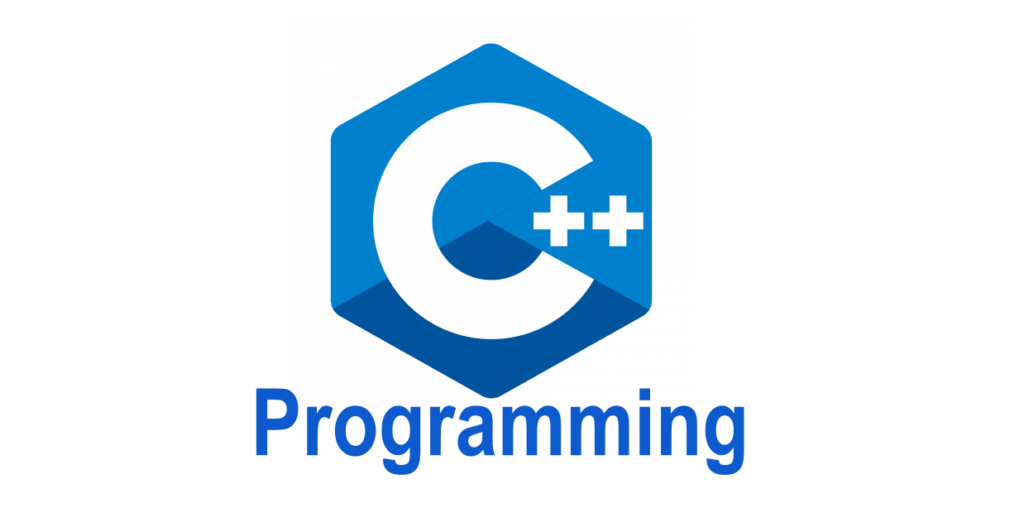- Home /
- C++ Programming
C++ Programming
About Course
- This Specialization is intended for all programming enthusiasts, as well as beginners seeking to develop their programming skills. This course will help you to cover all the basic concepts of C++ Programming with topics such as data types, variables, operators and others, followed by decision making statements and looping statements.

Description
- C++ is a powerful general-purpose programming language. It can be used to develop operating systems, browsers, games, and so on. C++ supports different ways of programming like procedural, object-oriented, functional, and so on. This makes C++ powerful as well as flexible.
- Multi-paradigm Language - C++ supports at least seven different styles of programming. Developers can choose any of the styles.
- General Purpose Language - You can use C++ to develop games, desktop apps, operating systems, and so on.
- Speed - Like C programming, the performance of optimized C++ code is exceptional.
- Object-oriented - C++ allows you to divide complex problems into smaller sets by using objects.
What will I learn
- Write and Debug code in C++ Programming
- Create engaging, graphical based programs
- Understand algorithms, and how to properly express them
- Develop a firm foundation of Computer Science concepts you can bring to any language you learn
- Use variables and operators to store and manipulate small pieces of data
Why? - Description
- C++ Programming is used to develop games, desktop apps, operating systems, browsers, and so on because of its performance.
- After learning C++ Programming, it will be much easier to learn other programming languages like Java, Python, etc.
- C++ Programming helps you to understand the internal architecture of a computer, how computer stores and retrieves information.
Tags
- Algorithms
- C Programming
- coding
- C++
- Computer Programming
- Graph Theory
- Graph Algorithms
- Standard Template Library
Topics for this course
- Introduction to C++ Language
- Difference and Similarities between Top Down Programming and Bottom Up Programming
- Introduction to C++ Basic
- Flow Control Statements
- Introduction to Arrays
- Searching and Sorting
- Introduction to Strings
- String handling built in functions
- Array and Strings in C++
- Introduction to pointers
- Pointer expressions
- Types of Pointers
- Pointer Arithmetic’s
- Array using pointers
- Array of pointer
- Functions: Declaration and Definition
- Types of functions
- Nesting of functions
- User Defined Function
- Recursion
- Storage classes
- Introduction to structure
- Advantages of structure
- Recursion
- Storage classes
- Introduction to dynamic memory allocation
- Advantage of dynamic memory allocation
- New and delete operators
- Array implementation using dynamic memory allocation
- Oops vs. Procedural Programming Approach
- C++ Character Set
- Scope resolution Operator (::)
- Oops Approaches
- Encapsulation
- Polymorphism
- unction Overloading
- Constructor & Destructor
- Operator Overloading
- Function Overriding
- Pointers
- Class object using pointer
- Array of objects using pointer
- This pointer Etc.
- Types of Inheritance
- Need of Virtual
- Friend Function and Friend Class
- Function Overriding
- Binding Types
- Static Binding and Dynamic Binding
- Virtual Function
- Abstraction
- Data Abstraction
- Abstract Class
- Pure Virtual Function
- Inline Functions
- Composition and Aggregation
- Introduction to Exception Handling
- Need of Exception Handling
- Try, Throw, Catch
- Multiple catch blocks
- Exception Hierarchies
- Introduction to file management
- File opening modes
- Opening and closing a file
- Input output operations on file
- Error handling
- Applications of file management
- Thread introduction
- Thread Synchronization
- Life cycle of thread
- Deal Lock situation
- Introduction to Templates
- Generic Programming
- Advantages of template
- Template function and Template class
- What is data structure
- Benefits and Types of data structure
- Introduction to algorithms
- Types of Algorithms
- Time and Space Complexity
Array
∙ String
∙ Link lis
∙ Stack
o Introduction to stack
o Stack using array
o Stack using linked list
o Applications of stack
∙ Queue
o Introduction to queue
o Circular Queue
o Priority Queue
∙ Tree
o Introduction to trees
o Types of trees
o Binary tree
o AVL tree
o Binary Search Tree
o Threaded binary tree
o M way tree
o B tree
- Searching in arrays
- Searching in strings
- Sorting
- Various sorting techniques
- Introduction of graph
- Types of graphs
- Implementation of graph using Adj
- Matrix and Adj
- Minimum spanning tree
- Kruskal’s Algorithm
- Prims Algorithm
- Application of Graph
- Introduction of hashing
- Hash table
- Applications of hashing
Target Audience
- Individuals looking to learn C++ programming, or experienced C++ programmers wishing to refresh or improve their skills
- People who want a successful career in software company
